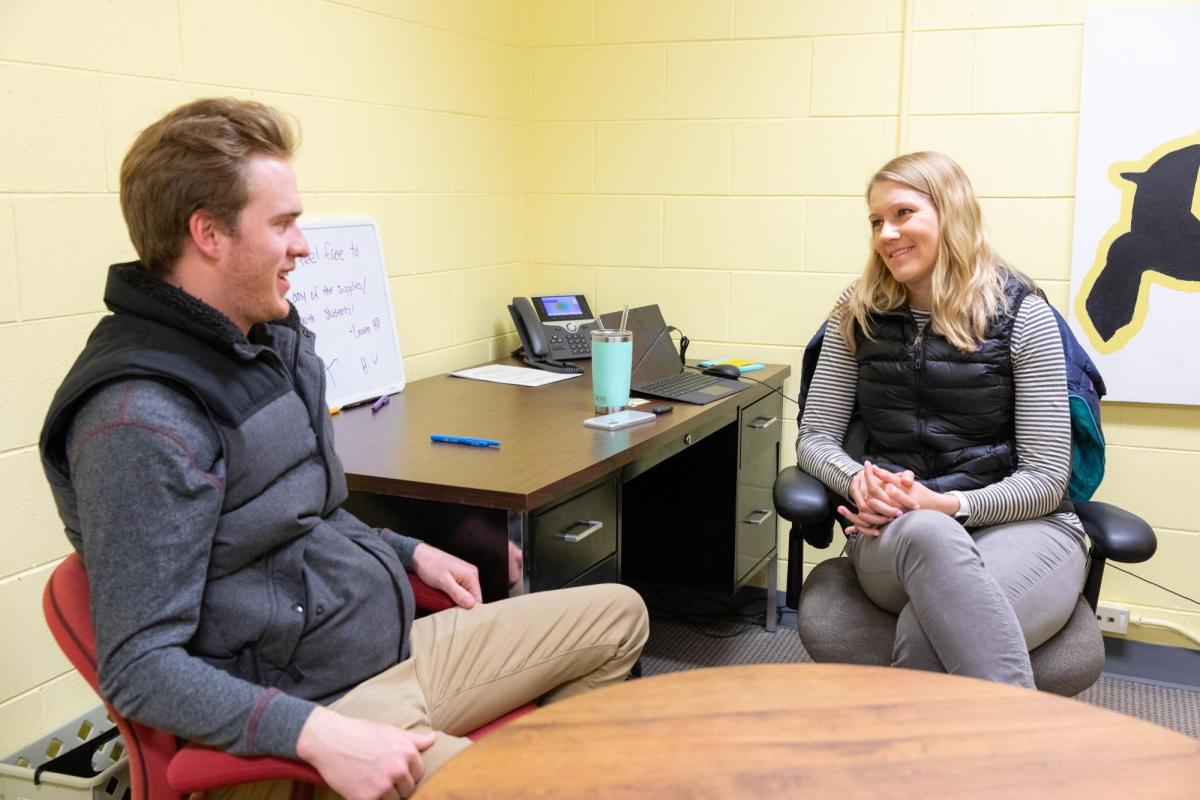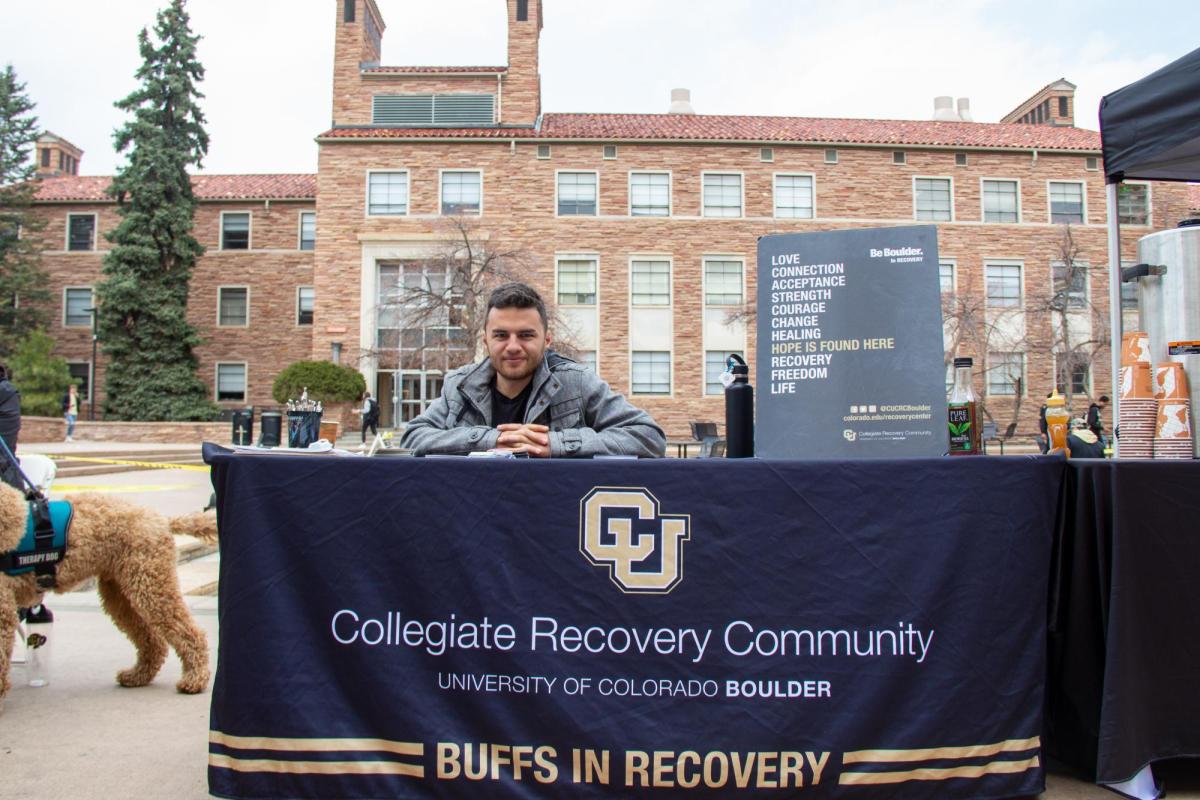Ways to support yourself and each other through a traumatic event

For many of us, trauma can be challenging to define and even more challenging to talk about.
It’s not always the circumstances of an event that determine whether or not it is traumatic for a person but how the experience made a person feel in that moment. The more helpless, overwhelmed, out of control or scared a person feels during an event, the more likely it is to be traumatic.
It’s also important to remember that while trauma is often associated with events that threaten our lives or safety, something can be traumatic even if it didn’t involve physical harm. News about natural disasters, gun violence and other distressing events can lead to a trauma response.
Here are some ways you can support yourself and your fellow Buffs.
Supporting yourself
If you’re experiencing feelings of shock, grief, anger, stress or being overwhelmed, here are some ways to show yourself compassion in the moment and longer-term.
Set healthy boundaries with yourself and others
Boundaries play an important role in our lives, especially when we are feeling anxious or experiencing a difficult situation or crisis.
Setting boundaries with yourself may look like
- Limiting your consumption of news or social media.
- Turning off notifications when you feel overwhelmed or need to focus.
- Making time to engage in hobbies or focus on things that bring you joy.
Setting boundaries with others may look like
- Removing yourself from situations that make you feel uncomfortable or unsafe.
- Asking to take a break or change the topic of conversation away topics that negatively impact your emotional health.
Don’t fight your feelings
When we experience a crisis or feel overwhelmed, it can be difficult to process our feelings and emotions. Sometimes, we may want to shut down or “turn off” our feelings. However, it’s important to acknowledge that what you’re feeling is normal, and it’s okay to feel however you’re feeling.
Journaling is a great way to explore and process your feelings. It can also help you work through your feelings and move forward in a healthy and productive way. If you’re new to journaling, try setting a timer for 2-5 minutes to write. If you don’t fill the whole time, that’s okay. If you’re unsure what to write about, try one of these prompts to get you started:
- Write down all of the feelings that are coming up for you. Don’t try to moderate them or judge them, simply let them flow onto the paper.
- Write a letter to a loved one. What would you want them to know?
- What has helped me through this process? What hasn’t?
- How can I make today better than yesterday?
- What am I learning about myself through this process?
- How can I stay connected with friends, family, loved ones and my community?
Practice self-care
Self-care is an important process for managing our mental health, though it may look different from person to person. Remember to set realistic goals and choose activities that you will enjoy and benefit from long-term. Even if you can’t commit a significant amount of time, a few minutes of self-care a day is better than none at all. If you aren’t sure where to begin, start with the basics:
- Take a shower: Showering is one way to practice basic self-care, and it allows us uninterrupted privacy to cry, sing, dance or let our emotions flood out in peace.
- Open your blinds: Opening your windows and blinds can help improve your mood and brighten up your space with sunshine and fresh air.
- Wash your sheets: Sleeping in fresh sheets can help bring us peace and comfort.
- Move your body: Physical activity, exercise and movement can help us process stress and move through our emotions.
Health Promotion provides weekly programming and workshops to engage in self-care and stress management activities, learn about campus resources and build community.
Supporting a friend
It’s important to remember that people may respond differently to a traumatic or stressful event, and that’s okay. If you notice a friend or fellow Buff is struggling, here are some things you can do:
Start the conversation
It can be hard to talk about our struggles, especially if it seems like others are doing okay. If you notice that someone may be going through a difficult time, reach out. Everyone needs support sometimes.
Remember that when someone shares that they’re struggling, it’s important to listen to them without expressing judgement or offering advice. Sometimes the most helpful thing we can do is sit with them through the challenging moments. Ask about and acknowledge their feelings and let them know you’re there for them. This may sound like
- “It sounds like you’re struggling a lot with that.”
- “How can I help?”
- “I care about you, and I’m here for you.”
- “That sounds like a scary experience, and it makes sense that you feel that way.”
Normalize their feelings
Normalize and validate their feelings. This doesn’t mean that you’re normalizing the bad thing that happened, but instead you’re affirming that their response to it is understandable. People respond to difficult or traumatic situations differently. However someone is feeling or acting is normal. This may include laughing, crying, anger, numbness or other responses.
Avoid judgment
When someone shares an experience or feeling that we understand, it may feel easier to relate and empathize. However, it’s also important to show compassion in times when we don’t necessarily understand what someone is going through. If someone comes to you for support, avoid expressing judgment about why they feel a certain way or how they are handling the situation. Feeling judged won’t change what is happening for them, and it may keep someone from seeking additional support.
Follow up
If you talk with a friend about a difficult or traumatic experience, be sure to follow up with them or check in to see how they’re doing. It can be helpful to schedule a regular call with a family member or friend to check in on a consistent basis. Let each other know how you’re doing, what is going well and what you may need support with. It can be helpful to write down a list together of who you would reach out to if you were in a crisis or felt suicidal. By doing this, you can identify people for yourself and show them that you are someone they can reach out to.
Here are a few examples of ways to check in with a friend or loved one:
- “You are so important to me, and I love you. I am here for you.”
- “I understand you may not be ready now, but I’m here for you if you want to talk.”
- “I hope you’re doing okay. Let me know if there’s anything I can do to support you.”
Talk with someone
It’s okay to ask for help, even if it’s hard to do. Connect and reach out to your friends, family, mentors and or colleagues. CU has various support and counseling resources available, see this list below and know they are here to support you.
Counseling and Psychiatric Services (for students)
Counseling and Psychiatric Services (CAPS) is here to support undergrad and graduate students who may be experiencing impacts from recent events and other mental health concerns. Students can access same-day appointments and crisis services by calling 303-492-2277.
CAPS also offers Let’s Talk, which allows you to connect with a counselor for free and confidential drop-in services virtually or in person. You can also sign up for free workshops to address issues related to grief, anxiety, self-care, relationships and more.
Office of Victim Assistance (for students, staff and faculty)
The Office of Victim Assistance (OVA) provides free, confidential counseling, advocacy, and information for all CU community members, including undergrad and graduate students, staff and faculty.
They specialize in supporing people around current and past life-disruptive events, including but not limited to, crime, trauma, intimate partner abuse, sexual assault/misconduct, stalking, experiences of bias, harassment, discrimination, abuse and violence.
For 24/7 support, same-day appointments and consultation services, please call 303-492-8855.
Collegiate Recovery Community (for students, staff and faculty)
The Collegiate Recovery Community (CUCRC) offers free peer-to-peer support meetings and community for individuals who are in recovery, interested in recovery or who are recovery allies. The CUCRC is here to provide a space for CU community members to connect, find support and process traumatic events in a healthy and productive way.
Don’t Ignore It (for students, staff and faculty)
Don’t Ignore It provides students, staff and faculty with resources and options for confidential support, reporting concerns and skills for helping a fellow Buff in need.
Faculty and Staff Assistance Program (for faculty and staff)
The Faculty and Staff Assistance Program (FSAP) provides free, confidential counseling services for CU Boulder faculty and staff through brief individual counseling, workshops and groups. They can also provide assistance to faculty and staff for personal and work-related concerns.






